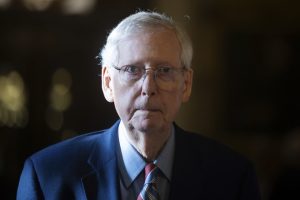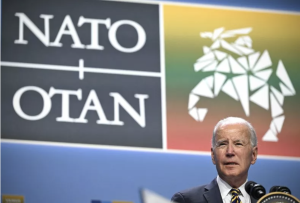OP-ED: Prof. Max Cameron on the need to strengthen Canadian democracy
Professor Cameron says British Columbians are worried about the state of democracy at all levels of government. Prominent threats to democracy include “fake news,” racism and discrimination, low citizen engagement, and voter turnout.
Prof. Gerald Baier says premiers lobbying the Bank of Canada on interest rate hikes is not necessarily negative
“Obviously, the Bank of Canada collects information, collects data that helps make its decisions,” says Prof. Baier. “But it’s not hurting anyone for them to write a letter that says, ‘Here’s what’s going on and here are the negative effects of of continued interest rate hikes.'”
Prof. Gerald Baier on why Canadian politics is less beholden to incumbency than in the US
Professor Gerald Baier tells Global News that Canadian politics are far less beholden to incumbency and money than in U.S. politics, where there is more of a professionalization of politics.
Prof. Maxwell Cameron writes about the challenge to Canada’s first-past-the-post electoral system
As the Ontario Superior Court will soon hear a Charter challenge against the first-past-the-post (FPTP) electoral system it should carefully consider how the way we vote affects the separation of powers, says Prof. Maxwell Cameron.
Can we achieve our emissions goals without tensions between the Federal and Provincial Governments? asks Prof. Kathryn Harrison.
Prof. Kathryn Harrison weighed in on the federal government’s proposal to offer investment tax credits to provinces for decarbonizing the country’s electricity grid
Find out what Professor Paul Quirk had to say about the possibility of Joe Biden’s Impeachment
“The hard-core, MAGA-oriented, constituency base of the Republican Party believes that the two impeachments of former president Donald Trump were partisan ‘witch hunts,’ without legitimate justification, and hankers for retaliation,” says Prof. Paul Quirk
There is a pressing need to move away from fossil fuels in order to meet the targets set by BC and the Canadian Climate Institute, says Prof. Kathryn Harrison
There is a pressing need to move more quickly away from fossil fuels in order to meet targets set by the province for 2030 and by the Canadian Climate Institute for 2050, says Prof. Kathryn Harrison.
The US Senate membership is steadily growing older, but it’s unlikely an age limit will be imposed, says Prof. Paul Quirk
Prof. Paul Quirk thinks it’s unlikely that an age limit would be imposed for U.S. senators, in part because they would have to vote in favour of halting their own participation in Senate life as older adults.
Call for Applications: Assistant Professor in Comparative Politics of the Global South
The Department of Political Science at the University of British Columbia (Vancouver) invites applications for a tenure-track appointment in the Comparative Politics of the Global South at the level of Assistant Professor, effective July 1, 2024.
The probability of the United States leaving NATO is very low say Prof. Paul Quirk
Prof. Paul Quirk says the probability of the United States leaving NATO is very low and that Republicans advocating for te US exit from NATO serves to promote the interests of Donald Trump.









